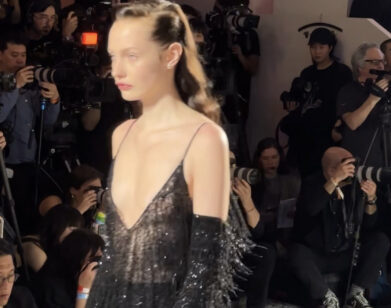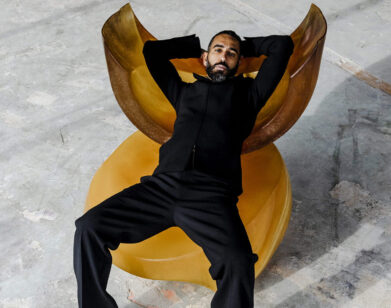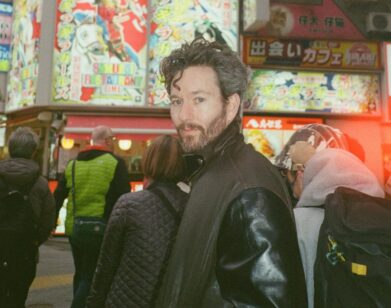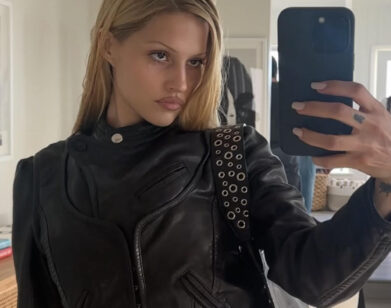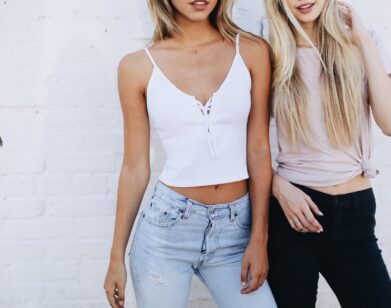Joseph Altuzarra
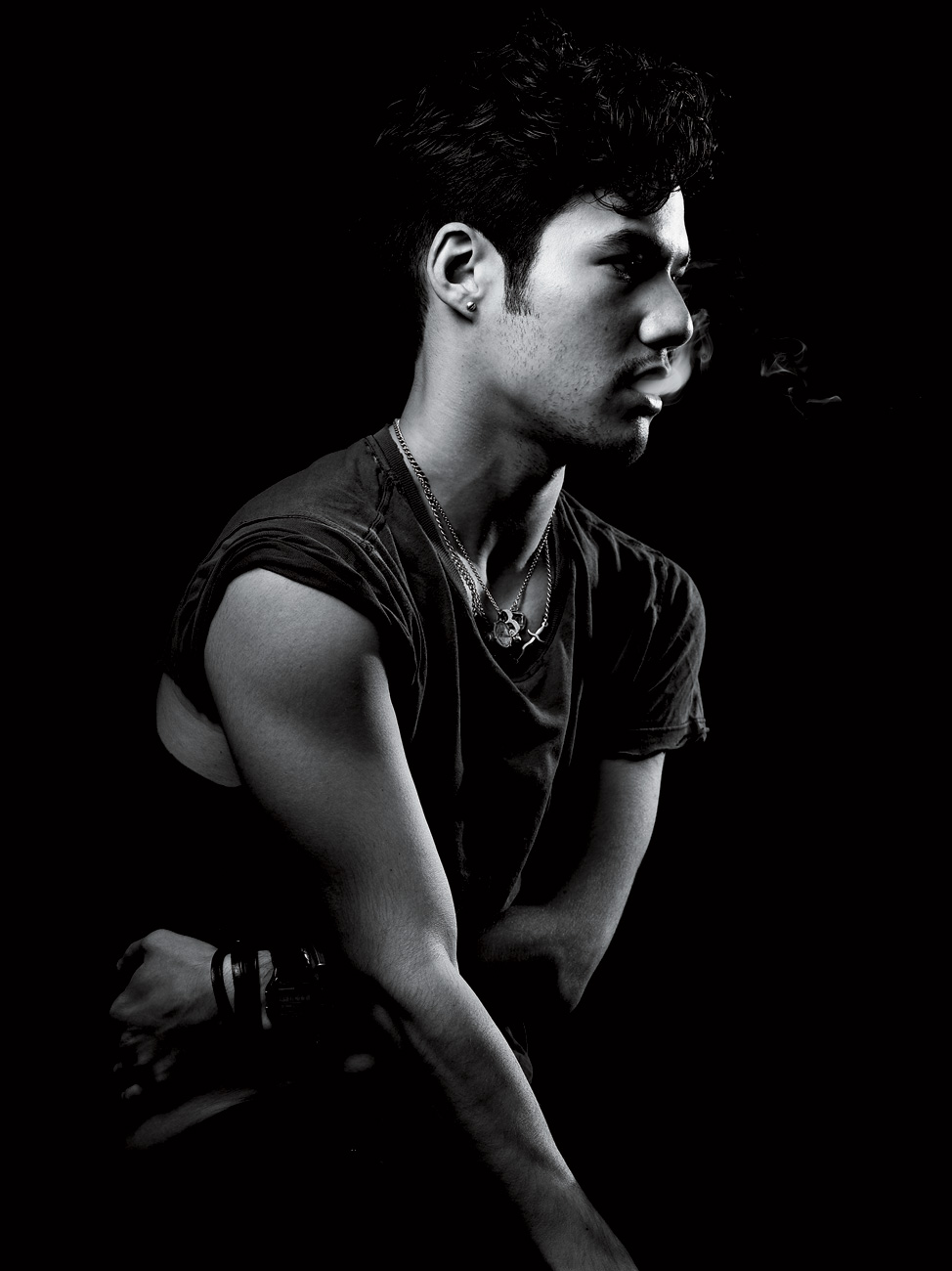
In the span of four collections, 27-year-old Paris-born Joseph Altuzarra has become the newest crown prince of downtown New York designers. In a sense, Altuzarra is the latest talent in a new generation of young Manhattan designers who have managed to galvanize top-tier fashion support and stimulate the interests of socialites and party addicts. But much like his friend and fellow designer Alexander Wang, Altuzarra isn’t so much following a path as he is creating his own—and while hype goes a long way in fashion, his comes with some serious skill behind it. Altuzarra began his career interning under Marc Jacobs and designing under Riccardo Tisci at Givenchy. Nevertheless, he might actually be most comparable to his idol, Tom Ford. Like Ford, he has been able to strike the right notes in blending sophistication and sexuality, with a keen interest in the shape of a woman’s body. He is also interested in making it over. Collaborating on a jewelry line with Gaia Repossi for fall, and with one CFDA award nomination already under his belt, the designer recently spoke with style guru Anna Dello Russo about his quasi-meteoric rise and why he wants to create something lasting.
ANNA DELLO RUSSO: You’ve only done four collections and already you’re more popular than Tom Ford. How do you think that happened?
JOSEPH ALTUZARRA: [laughs] I think it’s because of the Internet. You can build a brand very fast now, especially with bloggers and how fast images can get out—the message just goes out faster and stronger than ever before. But what I’m trying to do is something consistent every season, something strong. And I try to be nice—most of the time.
DELLO RUSSO: You’re also a really good communicator. As a new designer, you’re at the show, you’re creating, but then you make yourself available to the whole fashion system—you come to the party, so to speak.
ALTUZARRA: That’s a big part of being a designer now: going out, having dinners, meeting people. Being in an ivory tower, you can feel very removed.
DELLO RUSSO: In the ’90s, the designer was far less accessible. Everyone had a different job that happened in a different zone. But I remember after your first show in Paris, I came up to your apartment. I knew after that show that I wanted to meet you. That’s how distinct I thought you were.
ALTUZARRA: Again, I think it’s something that’s happened to this new generation of designers because of all the social media out there. We have so many ways of building relationships with people that it makes it all much easier. And in the future it will continue to be less and less formal.
DELLO RUSSO: There is such a friendly open atmosphere among designers, journalists, bloggers. Fashion was so cold at one point. It was not such an open, easy place. And this is good for fashion. Fashion is like music, and when you put music in a cage it doesn’t work.
ALTUZARRA: I think designers are starting to realize that we’re all in the same industry. There is really no point in trying to be removed. I’m not saying we should all be friends, but I think the relationships are a little easier and warmer. We’re making clothes—we aren’t saving the world. I’m not saying that designers aren’t artists, but at the end of the day, we make clothes. Hopefully we make beautiful clothes with a message, but in the end it’s for people to wear. I think that the hype of fashion has come down a level.
DELLO RUSSO: Absolutely. But for me, clothes mean self-expression. You need to have an audience and connect with people. Fashion is shared. It connects people. And we share an experience beyond the clothes. This rising generation—especially in America right now, which is really having a great moment—is like a breath of fresh air.
ALTUZARRA: I know New York. I show in New York. It feels like a community. Maybe that’s because we all went through hard economic times and everyone wants to help each other out.
DELLO RUSSO: When I met you, I also met Alexander [Wang]. You’re always together, which is lovely because your job is very competitive.
ALTUZARRA: I’m actually with Alex now in the Hamptons.
DELLO RUSSO: See? That’s a lovely message. I want to talk about your fashion. Your clothes are body-conscious, aren’t they?
ALTUZARRA: When you look at women today, many take very good care of themselves—they exercise, they eat well, they achieve so much in their jobs. I think they feel good, they feel beautiful, and I believe they want to show their bodies. To me, it’s simply from that point of view. I think women want to feel beautiful. They want to feel seductive. I also try to think about items that can be worn in different ways so they can be worn more than once. If you’re going to buy a $2,000 jacket, you are going to want to wear it over and over.
DELLO RUSSO: I think it’s safe to say you’ve found a muse in Vanessa Traina. She is really cool, which I find incredibly interesting. It’s like a new cool sexy ideal. She has a very strong look, but it’s also sexy.
ALTUZARRA: I think today women like Vanessa are like chameleons: one day they feel like this, the next day they feel like that. Maybe one day they’ll want to mix everything up. They’re much freer now.
DELLO RUSSO: Yes. And yet your clothes are really built. You have a lot of draping and tailoring. They aren’t simple clothes. Your last show was a little bit more conservative than the previous two. To me it had a much more ’90s feel to it. I was surprised. It had a Tom Ford vibe to it that I wasn’t expecting.
There’s a side to me that likes to make clothes for everyday. But I also think of fashion as an escape . . . even in an economy that isn’t strong and where it’s important to sell clothes, you have to make things that let people dream a little.Joseph Altuzarra
ALTUZARRA: Yes. In a way, the collection was like an homage to Tom Ford, because Tom Ford was the reason I started working in fashion. He is why I wanted to be a designer. The inspiration was Edward Scissorhands [1990] and that Tim Burton-esque aesthetic, but the spirit of what I wanted to do was similar to how Tom Ford always dressed women. He didn’t dress girls. I liked that there was a raw sexiness to the collection and that it was a little more powerful and a little less playful. It was almost strict.
DELLO RUSSO: Yeah, very strict. Almost authorial. A little bit fascist. [laughs]
ALTUZARRA: A little bit, and that was something that I kind of felt. It was almost like a uniform. There was a lot of black and leather, and a little S&M in parts—especially with the buckles. But I felt like I was paying my respects to Tom Ford, because he was really my generation’s Gianni Versace.
DELLO RUSSO: Maybe that’s why I felt it was a little bit conservative, because it was still a little close to the moment. “Oh, that’s back already.” But it was beautiful. You also do long dresses for the red carpet. Why do you do those?
ALTUZARRA: There’s a side to me that likes to make clothes for everyday. But I also think of fashion as an escape. It’s like a dream. It shouldn’t always be practical and about real life. Sometimes you have to do a piece that has a bit more of a wow—almost like, “I don’t know who’s going to wear that. It’s almost too much.” That’s a lot of what fashion is about. Even in an economy that isn’t strong and where it’s important to sell clothes, you have to make things that let people dream a little, you know?
DELLO RUSSO: I know you have had a lot of support from your family. Does your mother still work with you?
ALTUZARRA: Yeah, she’s the CEO of the company.
DELLO RUSSO: And you were actually born in Paris and still work there?
ALTUZARRA: Yes. I show in New York and my business is here, but I spend a lot of time in Paris because my team is there. I’m there almost half the year. I draw the collection there and stay for its development.
DELLO RUSSO: What are you doing for your next collection? That way I can tell everyone in Italy what to copy . . . [laughs]
ALTUZARRA: I’m still thinking about what I want to do, but we are still building the brand, so it’s very important to stay with the same woman in mind—who she is and what she likes. I work with Melanie [Huynh] on what she likes and with Vanessa on what she likes, and from that I move forward. They are both consultants. But I’ve been thinking about something with less references to the past. I want to think more about the future.
Anna Dello Russo is a Milan-based fashion journalist and the editor at large and creative consultant for Vogue Japan.
Photos: Joseph Altuzarra in New York, June 2010. All clothing and accessories: Designer’s own. Grooming Products: Egyptian magic skin cream. Hair: Akki/Streeters. Makeup: Osvaldo Salvatierra/Streeters. Special Thanks: Milk Studios.
Check out Joseph Altuzarra’s official Website.


